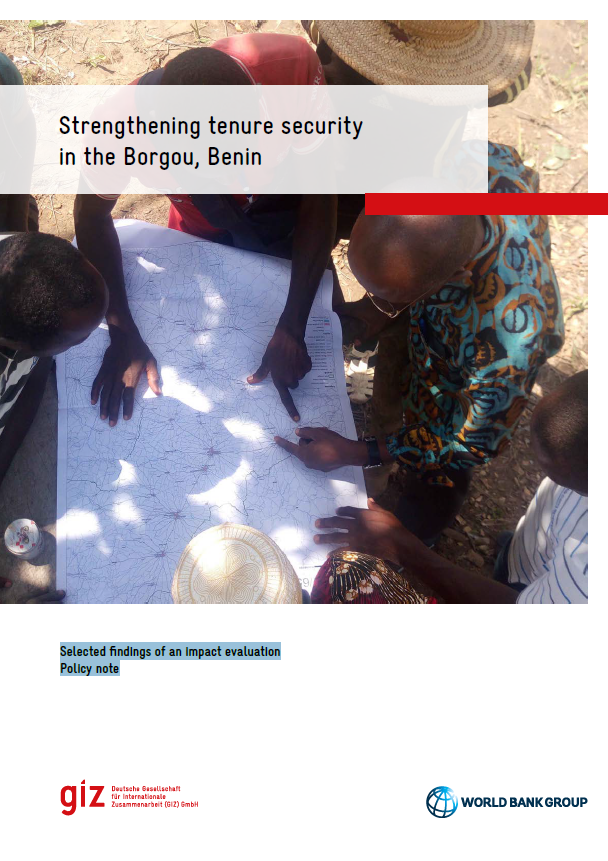Resource information
Increasing investment by smallholders in agriculture and livestock is essential for improving food security, income and resilience to climate change, but can be constrained by tenure insecurity. To help overcome the barriers faced in improving land tenure security, the Deutsche Gesellschaft für Internationale Zusammenarbeit (GIZ) German Federal Ministry for Economic Cooperation and Development (BMZ) launched the Global Project on Responsible Land Policy (GPRLP), which is testing interventions, evaluating impact and drawing lessons for scaling. This Global Project is funded by BMZ under the “One World, no Hunger” special initiative which includes Benin as one of the selected countries. The program “Promotion d’une Politique Foncière Responsable” (Promotion of responsible land policy, ProPFR), implemented from 2016 to 2023, piloted a range of interventions to improve land tenure security in northern Benin, with an emphasis on securing rights of the most vulnerable groups. ProPFR strengthened local land management and conflict mediation institutions via the Section Villageoise de Gestion Foncière (village land council, SVGF) and piloted several types of tenure documents:
In the 1980s, the first outline emerged of a community based, participatory approach to identifying and demarcating local land rights to increase tenure security for sustainable management of agricultural land and commonly used village lands. In Benin, the first version of this PFR was piloted in 1993 and led to the 2007 Rural Land Act, which provided the regulatory framework for the village level PFR, a cadastral map that could be used for issuance of a “Certificat Foncier Rural” (CFR). However, the 2007 Rural Land Act was replaced by the 2013 CFD, which abolished the CFR and introduced the Titre Foncier. The ProPFR program decided that these legal and institutional changes the Plans Fonciers Ruraux (rural land plans, PFR), the Attestation de Détention Coutumière (Certificate of Customary Possession, ADC), land lease agreements, and agreements for using pastoral lands. Furthermore, ProPFR also engaged in national policy dialogue.


